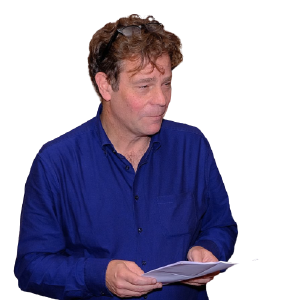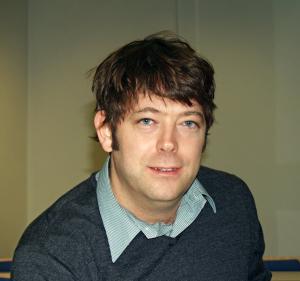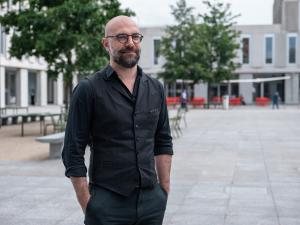Programme
Table of Contents
According to tradition, the school kicked off with an introduction to imprecise probabilities on Monday. In the following three days, we explored a variety of fields and disciplines that make use of imprecise probabilities: decision theory, logic, artificial intelligence, uncertain processes and quantum physics. Emphasis was put on how and why imprecision is adopted in and relevant to these topics or disciplines, and the lecturers discussed the consequences—both benefits and drawbacks—of allowing for imprecision in the disciplines under discussion. The lectures were of course given by leading experts in the field. The school finished on Friday with a hands-on research project and an atypical panel discussion. Throughout the week, we organised two social activities that allowed for easy socialising in a(n even) more relaxed setting.
Programme overview #
| Monday | Tuesday | Wednesday | Thursday | Friday | |
| 08:00 – 08:45 | Registration | ||||
| 08:45 – 09:00 | Opening words | ||||
| 09:00 – 10:00 | Introduction | Decisions | AI | Processes | Project |
| 10:00 – 10:15 | coffee break | coffee break | coffee break | coffee break | coffee break |
| 10:15 – 11:15 | Introduction | Decisions | AI | Processes | Project |
| 11:15 – 11:30 | toilet break | toilet break | toilet break | toilet break | toilet break |
| 11:30 – 12:30 | Introduction | Decisions | AI | Processes | Project |
| 12:30 – 14:00 | lunch break | lunch break | lunch break | lunch break | lunch break |
| 14:00 – 15:00 | Introduction | Logic | AI | Quantum | Project |
| 15:00 – 15:15 | coffee break | coffee break | coffee break | coffee break | coffee break |
| 15:15 – 16:15 | Introduction | Logic | Kayak | Quantum | Project |
| 16:15 – 16:30 | toilet break | toilet break | toilet break | toilet break | |
| 16:30 – 17:30 | Introduction | Logic | Quantum | Discussion | |
| 17:30 – ??:?? | Pizza |
Topics #
Introduction to imprecise probabilities #
The goal of the ‘Introduction to imprecise probabilities’ lecture is to take students with an understanding of multivariate probability theory to a working understanding of the basic concepts and techniques in imprecise probability. Namely, after the lecture, you, the student, should be able to
- motivate why it is valuable to have uncertainty modeling approaches that move beyond classical probability theory and explain how imprecise probability models achieve this,
- describe the three foundational representations of imprecise probability models—credal sets, lower and upper previsions/expectations, and sets of desirable gambles—and their relationships,
- derive inferences from and make decisions based on (simple) uncertainty models in these representations, and
- explain how conditioning and independence are generalized from classical probability theory.
Lecture material
Decisions #
Since Abraham Wald’s seminal work, decisions have been at the center of statistical inference. They also play a central role in the betting interpretation of lower previsions. We will investigate the decision theoretic foundations to bounded probability and its link to standard Bayesian decision theory, critically reviewing some fundamental problems encountered. We introduce a few of the most popular decision criteria, and explain why you might use them or not. Finally, we will demonstrate the theory on some simple but practical machine learning problems, and show how they benefit from the robustness against severe uncertainty featured by these decision criteria.
Lecture material
The logic of desirability #
A powerful theory of uncertainty is that of coherent sets of desirable gambles (or desirability). It encompasses, in a uniform way, the Bayesian theory of probability as well as Bayesian robustness and many other theories of uncertainty. Several works have been carried out to explicitly relate desirability and logic, either by formulating the former as a logical system, or by describing some common underlying structural characteristics. The goal of this lecture is to make sense of these attempts by introducing students to some basic concepts and methods from (abstract) logic and to desirability, including some of its recent generalisations.
Lecture material
Imprecise probabilistic graphical models in AI: Reasoning, machine learning and causal inference #
We discuss the intimate connection between causal inference and imprecise probability models. This allows for a deeper understanding of the identifiability problems characterising causal analysis while offering new counterfactual analysis tools. We achieve that within the popular Pearlian framework of structural causal models, thus establishing a link with credal networks. This allows us to describe the literature on imprecise probabilistic graphical models and their applications to AI even outside causal inference. This touches on various important domains such as machine learning, probabilistic logic, argumentation and reinforcement learning.
Lecture material
Imprecise-probabilistic processes #
Alexander Erreygers & Michael Kupper
There’s several ways to go about modelling uncertain processes in the setting of imprecise probabilities, each with its strengths and weaknesses. This lecture starts with a brief overview and discussion of three of these ways in the basic yet important setting of discrete-time uncertain processes with a finite state space, and in particular in that of imprecise Markov chains. In the second part of this lecture we take a look at what one can do in the more advanced setting where the state space is infinite and/or time is continuous, with a particular interest in mathematical finance.
Lecture material
Quantum probability #
A number of research groups have started to pay attention to the connections between quantum theory and imprecise probabilities, and the aim of this lecture is to lay out the basic ideas that make this connection interesting and appealing. We begin with a brief rehearsal of the basics of quantum mechanics, and the role that Hilbert spaces (as state spaces) and Hermitian operators (as measurements) play there. As a next step, we discuss the motivation for, and the foundations of, a theory of desirable measurements, inspired by the desirable gambles discussed in the Introduction to imprecise probabilities lecture, but where the real linear space of all gambles is replaced by the real linear space of all measurements (Hermitian operators). The standard transition from desirability to sets of probabilities leads us to consider (sets of) density operators as a dual and (almost) equivalent model; this well-known duality in the theory of imprecise probabilities is thus recovered here as the duality between the Heisenberg and the Schrödinger representations of quantum mechanics. Once these foundations have been established, we’ll give a few examples to show how interesting aspects of imprecise probabilities such as the treatment of symmetries and the practical usefulness of imprecision in Markov chains, have a consequential role to play in quantum mechanics as well.
Lecture material
Research project #
The fifth and final day was almost completely dedicated to one-day research projects—on one of the topics of the lectures—in small groups under the supervision of the lecturers. This allowed the participants to work together with and learn from their fellow students, and to get a deeper understanding of one of the schools’ topics.
Project proposals #
- Erik Quaeghebeur: Wind speed sequences
- Matthias Troffaes: Credal classification (more details can be found in the ‘ 03-credal-classification.ipynb’ Python notebook, which is also available on Google Collab)
- Alessandro Facchini: The logic of accept and reject
- Alessandro Antonucci: Practical bounding of counterfactual inferences by credal networks
- Alexander Erreygers: Ergodicity for imprecise Markov chains
- Gert de Cooman: Conditioning in quantum probability
Panel discussion #
The school concludes with a perhaps somewhat atypical 1-hour panel discussion, where you get to discuss with the lecturers. While it can be interesting to discuss future research directions and challenges for the field of imprecise probabilities, we would like to focus most on advice for young researchers, ranging from tips for setting up fruitful collaborations to opportunities and interesting responsibilities beside one’s research, or from the importance of (and issues with) the review process to making the best of a poster session.
Lecturers #
Alessandro Antonucci #
Gert de Cooman #

Senior Full Professor in Uncertainty Modelling and Systems Science at the Foundations Lab for imprecise probabilities, Ghent University
Alexander Erreygers #

Postdoctoral researcher at the Foundations Lab for imprecise probabilities, Ghent University
Alessandro Facchini #
Michael Kupper #

Professor for Stochastics and Financial Mathematics at the Department of Mathematics and Statistics, University of Konstanz
Erik Quaeghebeur #

Assistant Professor at the Uncertainty in Artificial Intelligence Group, Eindhoven University of Technology
Matthias C.M. Troffaes #

Professor in Probability at the Department of Mathematical Sciences, Durham University
Social activities #
On Monday evening, we ended the school’s first day with an easy-going pizza night to facilitate interaction and connection between the participants and lecturers. Besides this pizza night, there was one more social activity: on Wednesday late afternoon, the participants and lecturers got to explore the canals of Ghent by kayak, a unique and fun way to visit the beautiful historical centre of Ghent.





